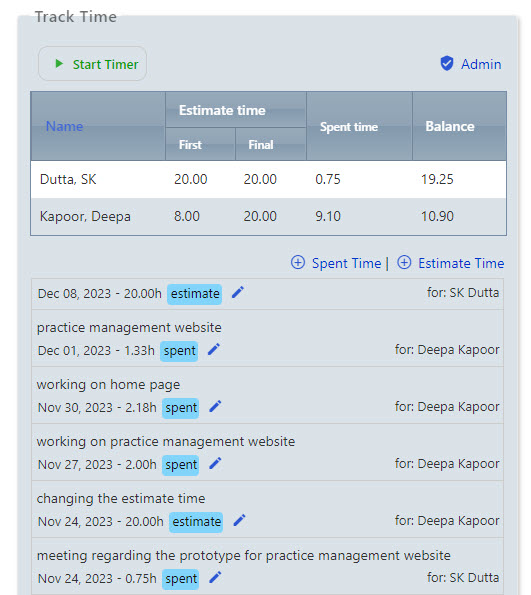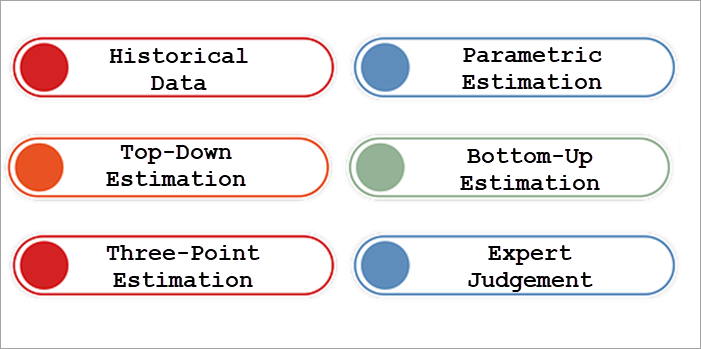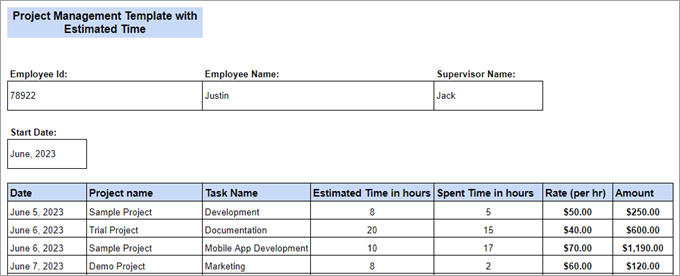What is Estimation of time?
Time estimation is the art of predicting how much time you’ll need to complete a project or individual task. It’s crucial for planning your project schedule, setting realistic deadlines, and staying on track.
What are the factors to consider while estimating the time?
- Task Type: Is the task to be completed a simple one or complex one?
- Difficulty Level: Are there skills or knowledge required that may take extra time?
- Resources: Do you have the necessary tools, people, and information readily available?
- Availability: Can you dedicate focused time to the task, or are there potential interruptions?
- Potential Roadblocks: Anticipate anything that might slow you down, like technical issues or information gaps.
- Project Due Date: Don’t forget to factor in the overall project deadline when estimating individual tasks.
Steps to Estimate Time:

- Project Setup: Outline your project using a project management tool.
- Break it Down: Identify the individual tasks and any sub-tasks involved.
- Team Expertise: Consider the skills required for each task and assign them accordingly.
- Team Discussion: Collaborate with your team to estimate the time needed for each task, considering their experience and the task difficulty.
- Adaptability: Be flexible – if a task takes longer than expected, adjust the estimated time to keep your deadlines realistic.
- Track Time: Encourage team members to log their time on tasks. This provides valuable data for future estimates.
- Monitor Progress: Regularly review task progress and project deadlines to ensure everything stays on track.
Why is time estimation important?
Accurate time estimation offers several benefits:
- Realistic Deadlines: Helps set achievable deadlines for individual tasks and the overall project.
- Improved Planning: Helps plan resource allocation, scheduling, and other project elements effectively.
- Project Forecasting: Allows for better forecasting of future project timelines and budgets.
- Risk Management: Identifies potential delays or resource bottlenecks early to mitigate risks.
By working on time estimation, you’ll be well-equipped to plan and manage your projects for success!
Techniques used for Time estimation:

Historical Data:
This technique taps into past experiences. Analyze similar projects to understand how long similar tasks took. Consider past delays and adjust your estimates accordingly to improve accuracy.
Parametric Estimation:
In this technique, statistical information is used to predict resource needs (time, cost, human resources) for your project. Historical data serves as a valuable reference point here.
Top-Down Estimation:
Divide your project into manageable phases and estimate the time for each. Then, further break down these phases into smaller tasks and estimate their times individually. This refines your overall estimate.
Bottom-Up Estimation:
Take the opposite approach. Estimate the time required for each task within your project. Summing these individual estimates provides the total project timeframe. This approach is ideal for well-defined projects with clear task breakdowns.
Three-Point Estimation (TPE):
TPE helps us understand things better by thinking about different possibilities.
- Optimistic Estimate: The ideal scenario where everything goes smoothly.
- Pessimistic Estimate: Allows for potential risks and delays.
- Most Likely Estimate: A realistic timeframe based on your experience and judgment.
The formula for Estimated Time:
Estimated Time = (Optimistic Estimate + Pessimistic Estimate +(4 * Most Likely Estimate)) / 6
Expert Judgement:
Tap into the experience of project managers, team leads, or subject matter experts. Their knowledge of similar projects and potential risks can offer valuable insights for time estimation.
Improve your Estimation Skills with:
OfficeClip Task Management tool:

Use task manager to record estimated and actual time spent on tasks. Gain valuable insights for future estimates.
Project Management Templates:

Leverage pre-built templates to streamline the process and ensure consistency in your estimation practices.
By mastering these techniques and utilizing helpful tools, you can develop your time estimation skills and confidently manage project timelines.

